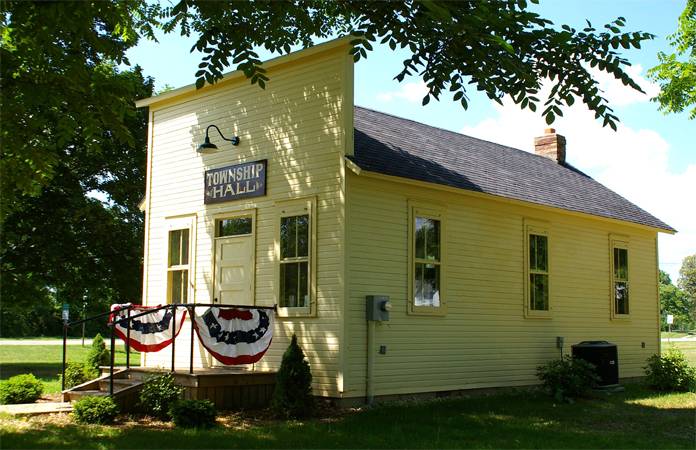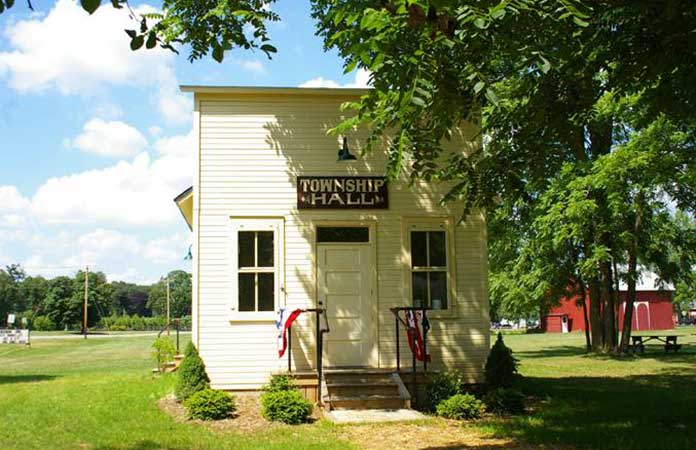Center of Grassroots Government
The Township Hall Has Been the Center of Grassroots Rural Government
And whether it’s Brady, Pavilion, Schoolcraft or Wakeshma, the role of township government has changed and evolved over time.
Back in the day, township residents were taxed for road upkeep, but with a twist. The head of the household—if a man—had a choice: he could pay a set amount of road tax, or he could reduce that amount—or eliminate it—by spending a certain number of days working on road repairs.
In addition to an elected supervisor, early townships also chose path masters and fence masters. In the days of the horse and buggy, an intricate map of walking paths crisscrossed the townships and it was the responsibility of several men to see that pathways across private property were kept open.
Fence masters monitored the condition of road fences. Property owners could be fined if their fences were in poor repair, as livestock was routinely driven along the roads either to market or to distant pastures.
But some responsibilities of township government haven’t changed. Tax collecting, maintaining polling places and overseeing elections, and establishing and maintaining cemeteries are still important township government responsibilities, just as they were in Michigan’s early days.
The building pictured here was Brady Township’s second township hall. The first hall was located east of Vicksburg on W Ave. After a new township building was constructed at the corner of Richardson and Spruce streets, in 1962, this building was sold and later served as a home, then a garage. It was purchased by the Historical Society in 2009 and moved to the Historic Village. With the help of the ‘Thursday Guys’ it was completely gutted and renovated to resemble its original function.


